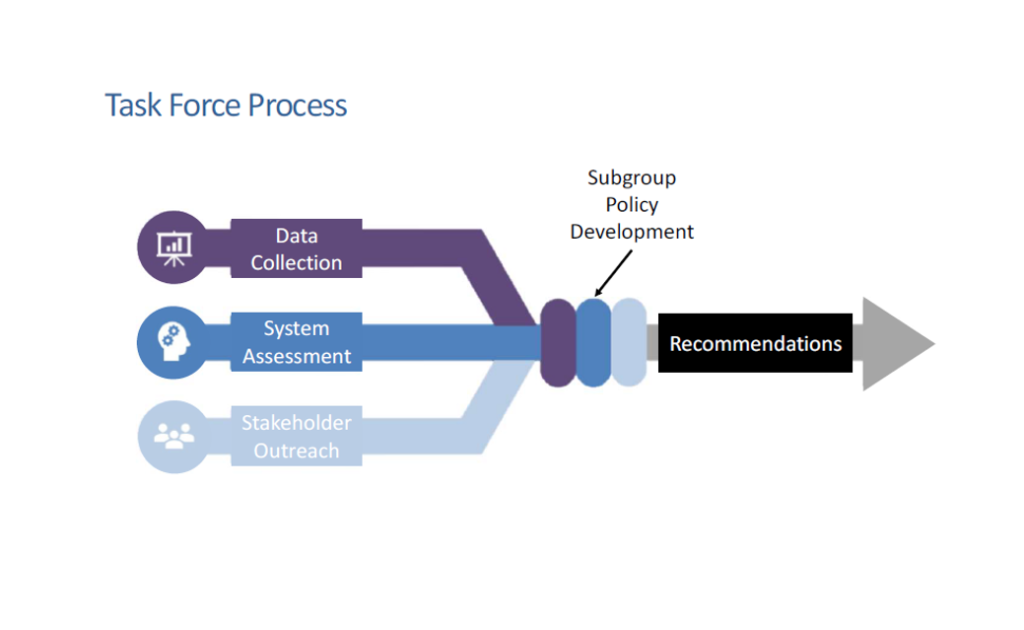
Michigan’s jail population tripled over the last 35 years, even as crime rates dropped. This increase includes growth in the pretrial and female populations and a shift in the highest incarceration rates from urban to rural counties.
With that in mind, state and county leaders officially invited CJI and The Pew Charitable Trusts (Pew) into Michigan in February 2019. CJI’s work with Pew to reduce Michigan’s rising jail population is the first jail reinvestment project of its kind. It is modeled after the Justice Reinvestment Initiative, which focuses on reducing the prison population.
A few months later, in April 2019, Gov. Gretchen Whitmer created the Michigan Joint Task Force on Jail and Pretrial Incarceration with an executive order. The charge is to make data-driven recommendations to the legislature that will reduce jail admissions and lengths of stay, expand jail alternatives, and provide services to crime victims while aligning Michigan’s practices with research and constitutional mandates.
The 21-member Task Force includes state legislators, county commissioners, a prosecutor, a defense attorney, law enforcement leaders, judges, a crime victim representative, a formerly incarcerated person, and other community leaders. Chief Justice Bridget McCormack and Lieutenant Governor Garlin Gilchrist chair the Task Force; thus far, the Task Force has met monthly since July.
At the most recent October meeting, CJI and Pew staff presented a system assessment of Michigan’s policies and practices that affect jail populations. Around 100 members of the public attended and about 40 community members delivered verbal testimony. Each meeting has been well attended by Michigan residents and covered by local media, building momentum in the state for this important investment.
Over the next two months, the Task Force will meet in small groups to review CJI and Pew’s data analysis and system assessment and will come up with legislative and budgetary recommendations by January 2020.
Recommendations may include items such as funding for jail alternatives and victim services, ways to reduce jail lengths of stay, improved pretrial decision-making, and ways to maximize system efficiency to ease burdens on county budgets. By ensuring jail bed usage is intentional, the state can promote public safety and economic stability while being transparent and being fiscally responsible.
CJI’s continuing role in this county-state, inter-branch, and bipartisan project is to center the Task Force and other Michigan leaders on the data and research as they work to improve the functioning of Michigan’s local justice systems.